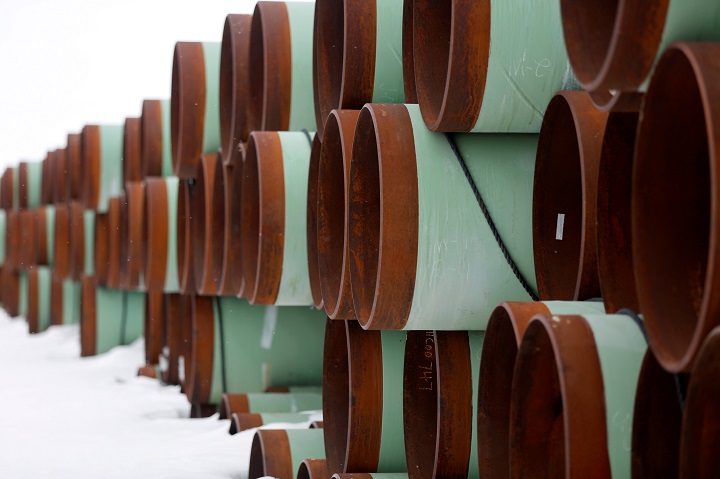It’s the latest incoming trade salvo from the United States: the U.S. is considering punitive duties on pipeline material from a half-dozen countries including Canada.

The duties being sought for large-diameter welded pipe from Canada are more than 50 per cent. Canada supplies about US$66 million of pipe annually to the U.S. for use in oil and gas pipelines.
The allegation from U.S. private industry is that foreign competitors from Canada, China, India, Greece, Korea and Turkey use unfairly dumped product.
The U.S. Department of Commerce is now weighing the case and could make final determinations on anti-dumping and countervailing duties in July and September. That’s if the U.S. International Trade Commission finds in March that the case has enough merit to proceed.
The process is similar to one used against Canadian softwood lumber, newsprint and Bombardier planes. Massive duties against Bombardier were later knocked down by the International Trade Commission, which disagreed with the Department of Commerce duties.

Get weekly money news
Commerce Secretary Wilbur Ross is celebrating the increase in trade actions this year: in a press release, Ross saluted the 81 per cent increase in trade cases initiated this year.
Canada has responded with a legal shot of its own: It is targeting the entire U.S. system for imposing duties, in a case at the WTO that has infuriated the U.S. and could have major global implications.
There was one bit of comforting trade news today: the White House played down President Donald Trump’s threat of a so-called reciprocal tax on trade, characterizing it as an offhand remark with no imminent policy plan attached to it.











Comments
Want to discuss? Please read our Commenting Policy first.